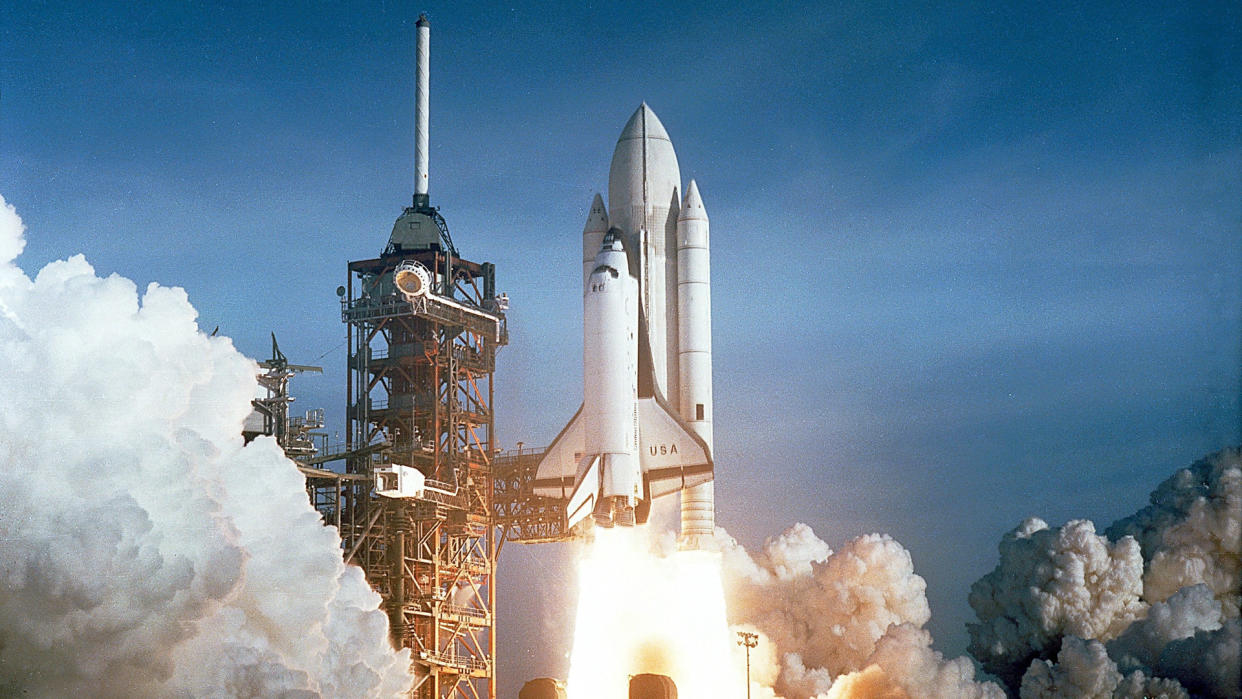NASA vs. Musk and Bezos: Who Pays Aerospace Engineers More? The Answer May Shock You

The next space race is on. It’s not a battle to reach the moon but a competition to recruit the best aerospace engineers to create a viable place for humanity in outer space, make space tourism mainstream — and to do it all while earning a profit.
Check Out: Mark Cuban’s 5 Best Passive Income Ideas
Read Next: 6 Genius Things All Wealthy People Do With Their Money
Aerospace engineers entering the field today, or looking to advance in their careers, have a multitude of options. They can apply at traditional aerospace companies like Boeing or Lockheed, become government employees at NASA, or seek employment and glory at the next generation of aerospace companies, including private firms like Elon Musk’s SpaceX or Jeff Bezos’ Blue Origin.
Thanks to the higher profiles of these billionaire-owned companies, traditional aerospace firms and NASA are having difficulty recruiting engineers with the “right stuff,” so to speak.
How Much Do Aerospace Engineers Earn?
Generous compensation packages undoubtedly aid in recruiting. Ann Richmond, deputy director of talent services at NASA, admitted to Fortune.com that NASA has “little bit of a tougher time” competing with private space companies when it comes to salary.
That could be an understatement.
According to Fortune.com, NASA uses the federal government’s General Schedule for pay scales, with salaries determined based on the level of degree held, and starting at $54,557 for an engineer with a bachelor’s degree. If you have a doctorate, your starting salary will top out at $73,038.
Compare that to the median salary of $126,880 per year for aerospace engineers at any level, based on U.S. Bureau of Labor statistics.
Private companies have fewer financial constraints when it comes to hiring. SpaceX has listed starting salaries for aerospace engineers ranging from $95,000 up to $115,000. A group engineering manager at SpaceX earns $207,314, according to Comparably.com. The average salary in engineering sits at $136,515, Comparably.com reported.
Engineering positions at Blue Origin are comparable to SpaceX, and potentially a bit higher, based on Glassdoor.com statistics. Propulsion engineers earn between $88,000 and $122,000, with an average salary of $104,000. Software engineers earn up to $139,000.
Levels.fyi reported that the highest paying role at Blue Origin, a program manager, earns $225,106 annually, including compensation in the form of stocks and bonuses.
Work Hard for Big Rewards
The pressure of working at a private industry space company may not be worth the six-figure salary for many people, though. NASA’s Richmond told Fortune.com that many engineers who came to NASA after working in private space industry “”shared that they felt a little burnout.”
NASA and companies like Boeing tout a better work-life balance and robust employee benefits packages as advantages.
“We see some very savvy applicants that are really looking at the total compensation package,” Richmond told Fortune.com.
Aerospace Recruiting: Reimagined
Even with the robust benefits package NASA can offer as part of the federal government, that’s not enough to keep many engineers from pursuing the bigger paycheck and prestige of private space companies.
Bezos and Musk have backgrounds in big tech. Their companies recruit with philosophies and tactics borrowed from Silicon Valley. Rather than exhibiting at job fairs like Boeing and Lockheed Martin, SpaceX and Blue Origin take a more aggressive tactic, observing and pulling from robotics teams and rocket clubs on college campuses in a similar way that scouts recruit potential pro athletes.
Aerospace students covet positions at SpaceX and Blue Origin, recruiters told Fortune.com. But it’s not just because of the higher salaries with these high-tech companies. “You’re doing this cool thing,” Griffin Rahn, an aerospace major at Georgia Tech, told Fortune.com.
“Twenty years ago, you would not have characterized the space business as fast moving,” Daniel Hastings, professor of aeronautics and astronautics at MIT, also told Fortune.com. But that has changed — and with it, the salaries and expectations of professionals in the field.
“It’s more and more common that we have people moving back and forth between NASA and SpaceX and NASA and Blue Origin,” Richmond said.
Learn More: 26 Ways To Make $1,000 Fast — In a Week or Less
Bottom Line: If you’re graduating college with an aerospace engineering degree, you have more options than ever before. You can choose a legacy company for robust benefits and a life outside of work, or you can take a chance, cash a larger-than-average paycheck, and play a role in the future of space travel.
More From GOBankingRates
How Much Does the Average Middle-Class Person Have in Savings?
5 Reasons You Should Consider an Annuity For Your Retirement Savings
This article originally appeared on GOBankingRates.com: NASA vs. Musk and Bezos: Who Pays Aerospace Engineers More? The Answer May Shock You
